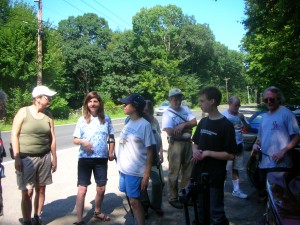Since the Republicans have taken a few pages from the Saul Alinsky organizing playbook—Alinsky was the legendary Chicago community organizer who influenced Obama, known for such tactics as a fart-in—maybe it’s time for Barack Obama to ask himself “What would Alinsky do?
What he wouldn’t do is capitulate. Alinksy would know, as Obama should know, that if he lets health reform die now, his entire agenda will be sunk in a quagmire of intransigence, lies, and loud, even violent public opposition. He will have no legacy beyond this point, and that would be a tragedy.
Barack Obama, President should turn to the Barack Obama of the past: that community organizer and brilliant marketer who knows how to galvanize a crowd, frame an issue, and move the discourse.
The Barack Obama who understood from Alinsky the impact a group of low-income could have when they move from disenfranchised, socially alienated aloneness with their troubles to a cohesive community group able to press the power structure. The Obama who was a contributing writer to a book called “After Alinsky: Community Organizing in Illinois.”
THAT Barack Obama would not be talking about taking the public option off the table. Instead, he’d make a speech something like this:
“Fellow Americans, for the past several months, we’ve been trying to move this health care system forward from the disastrous present where good solid working folks can’t afford to get treated, but healthcare executives live the high life. All we’re trying to do is create a system where health care is the right of every American, just as it is the right of the citizens of almost every other industrialized country in the world. But we are blocked at every turn. We’ve tried to meet them half way, and we have been rebuffed. We try to negotiate, to compromise. And instead, we’re shouted down, we’re lied to, and we’re faced with people who will not budge an inch because they want to protect their own perks.
“We will not allow this little group of small-minded selfish liars to control the dialogue. We made a promise to make healthcare not only affordable but he guaranteed right of every American, and we’re going to keep this promise.
“To get out of the stalemate, I am withdrawing the existing health reform legislation and replacing it with just one paragraph that everyone can understand, that can’t be misrepresented, and that will rapidly transform us to full universal coverage. I ask your wholehearted support of this clear and simple action plan. It uses the one part of our healthcare system that has been working, and working well, since 1964. It’s tested and proven.
“As of one year from the passage of this legislation, the effective age of eligibility for Medicare shall be lowered to age 55. As of three years from passage, the eligibility for Medicare shall be age 35. And as of five years from passage, all citizens of the United States shall be eligible from birth. Companies now offering healthcare coverage to their employees shall continue to extend coverage until they are Medicare-eligible or until an employee takes a position with another company that offers equal or better coverage.
“That’s it. Instead of hundreds of pages of confusing legal jargon, a single paragraph of enabling legislation to open the door to the right of healthcare for millions of Americans. Citizens of America, this is your birthright.
“I will introduce this legislation every year that I am in office, until it passes. And I will work with you to organize, community by community, until your Senators and Representatives, whether Democrat, Republican or independent, support this bill or are replaced by those who do.”
Let’s see this speech on every network, every blog, every radio show, and in every newspaper in the country. Delivered, as he surrounds himself on stage with the victims of today’s healthcare policy madness: those who can’t get treatment, get the wrong treatment, are marginalized or even see family members die because of the cost-first, profit-only, single-bottom-line narrow-mindedness of today’s system.
In 1979-80, Shel Horowitz advocated for single-payer healthcare as a staff organizer for the Gray Panthers of Brooklyn. His eight books include Apex Award winner Principled Profit: Marketing That Puts People First.
Source for the “fart-in story and Obama’s book contribution: Bill Dedman, “Reading Hillary Rodham’s hidden thesis,” https://www.msnbc.msn.com/id/17388372






 [/caption]
[/caption]